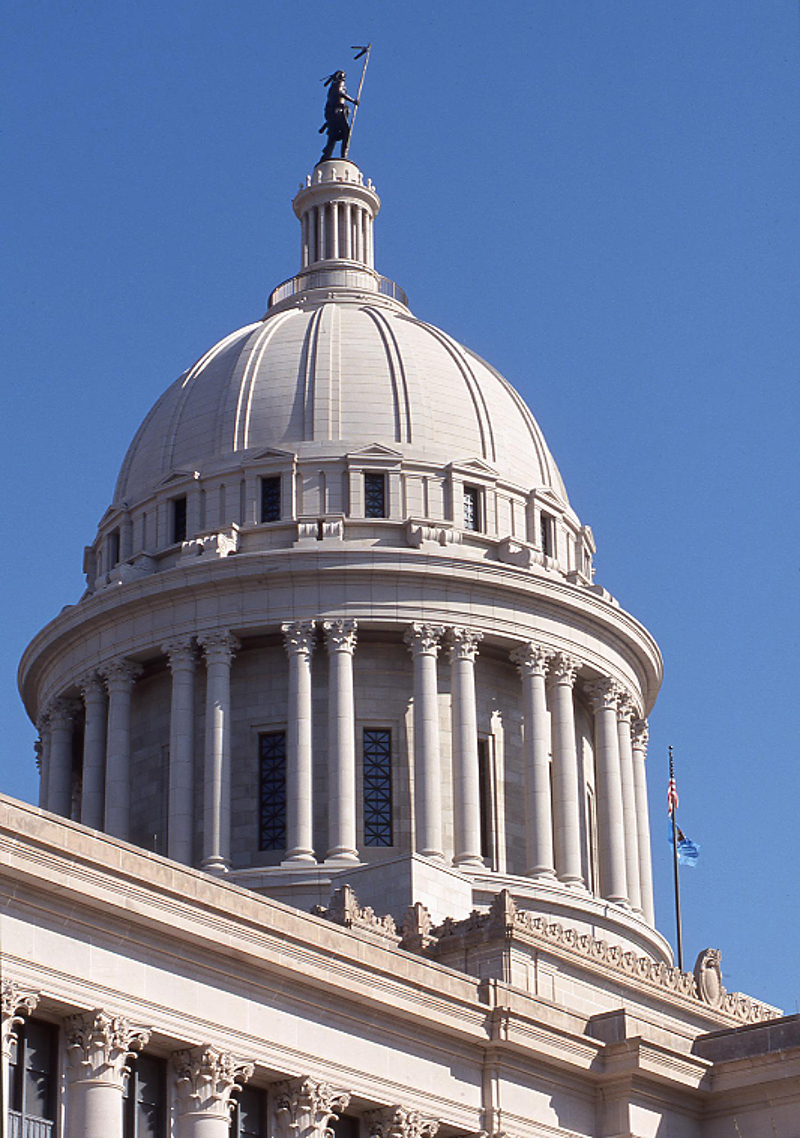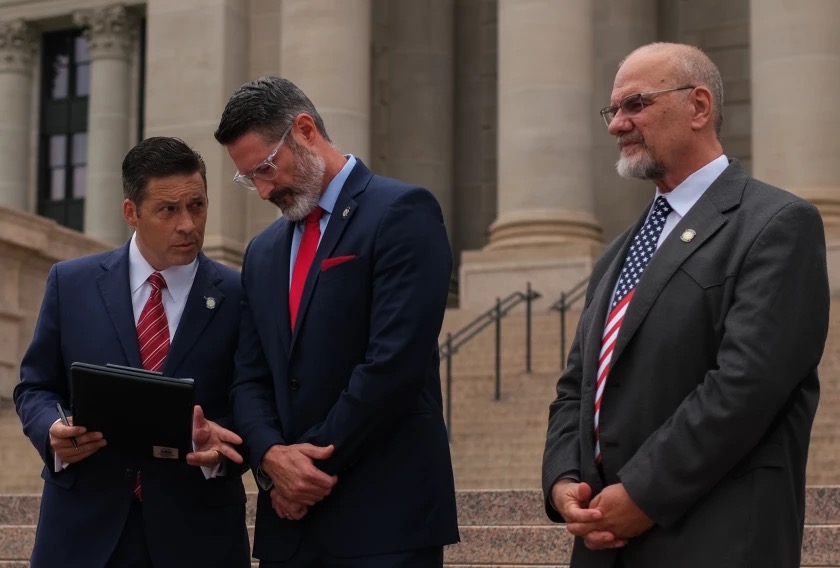OKLAHOMA CITY – Legislation that would change the way signatures are gathered for petitions has ignited a fiery debate in the state legislature, raising questions about election integrity and the future of citizen-led initiatives.
Senate Bill 1027, which advanced through the House Elections and Ethics committee and the Government Oversight Committee, aims to amend the state’s initiative and referendum process, prompting accusations that it could undermine Oklahomans’ ability to directly influence laws and constitutional amendments.
Originally authored by Senate Pro Tempore Lonnie Paxton (R-Tuttle), but now spearheaded by Sen. David Bullard (R-Durant) and House Speaker Kyle Hilbert (R-Bristow), SB 1027 adds multiple new regulations for the state petition process,which can be used by citizens to amend the constitution or pass new laws.
While the legislation changes the way petitions can be circulated, one of the most contentious elements of the legislation is the requirement that initiative petitions gather signatures from across the state, rather than concentrating them in a few populous areas such as Tulsa and Oklahoma City.
An amendment in the House committee added that signatures equal to no more than 11.5 percent of the votes cast in any county during the most recent statewide general election may be collected for a petition to change state law. It is currently required that 8% of the total votes cast in the last elections are required for a statutory change, and 15% for a constitutional change across the whole state; it is not currently county specific.
The changes would have made it more difficult to collect the more than 157,000 signatures supporting raising the minimum wage, today still stuck at $7.25 an hour, that voters will consider in next year’s primary election.
Hilbert contends that the current initiative-petition process disproportionately favors urban areas, effectively disenfranchising voters in rural Oklahoma. In a news conference, Hilbert said based on research from the Secretary of State’s office, two-thirds of the usual signatures on citizen petitions are collected in Oklahoma City and Tulsa.
The bill has drawn opposition from Oklahoma nonpartisan think tank, Oklahoma Policy Institute.
“SB 1027 could be overreach by the legislature into the people’s reserved right to legislate. Perhaps legislators will take a second look as the bill moves through the process.,” former Oklaloma House Speaker Steve Lewis wrote.
Critics, such as State Rep. Mickey Dollens (D-Oklahoma City), argue that SB 1027 will make it nearly impossible for citizen-led ballot initiatives to succeed.
“This actually disenfranchises rural voters by limiting the amount of people in Oklahoma who can sign (a petition),” he said.
Currently, state law provides 90 days for signatures to be collected, it is the shortest amount of time allotted for the 26 states that allow ballot referendums, with the next shortest being 10 months in Utah, Nevada, and Washington. Dollens filed an amendment for SB 1027 on April 9 to extend this to 180 days in order to allow more time for signatures to be gathered in rural areas.
Dollens said he “highly, highly doubts it will be accepted” as Hillbert “gave an ultimatum” that Dollens must agree to be co-author of the bill and vote for it going forward in order for him to accept the amendment.
“I’m trying really hard to give more time for rural Oklahoma to be able to weigh in on the signatures because I filed the amendment to extend (the time). If the author of the bill truly wants more representation from rural Oklahoma, he should take the amendment up.,” Dollens said.
The Oklahoma Freedom Caucus has played a key role in pushing for this legislation. The caucus’s emphasis on election integrity and preventing outside influence aligns with the bill’s provisions, but their critics fear their support is less about election integrity and more about limiting direct democracy.
Almost every identified member of the Freedom Caucus in Oklahoma has signed on as co-authors of the bill, including Sen. Shane Jett (R-Shawnee), Sen. Dusty Deevers (R-Elgin), and Sen. Dana Prieto (R-Tulsa).
Other co-authors include Sen. Paxton (R-Tuttle), Sen. Julie McIntosh (R-Porter), Sen. Randy Grellner (R-Cushing), Sen. Kelly Hines (R-Edmond), Sen. Warren Hamilton (R-McCurtain), Sen. Jerry Alvord (R-Wilson), Sen. Christi Gillespie (R-Broken Arrow), Sen. Roland Pederson (R-Burlington), Sen. Jack Stewart (R-Yukon) and Rep. Kevin West (R-Moore).
SB 1027’s passage in the Elections and Ethics Committee by a 6-1 vote and in the oversight committee with a vote of 14-4 indicates strong support within the Republican-controlled legislature. As SB 1027 moves forward, its potential impact on Oklahoma’s democratic processes remains a subject of concern for many state Democrats.
Gaylord News is a reporting project of the University of Oklahoma Gaylord College of Journalism and Mass Communication. For more news by Gaylord News, go to GaylordNews.net.




